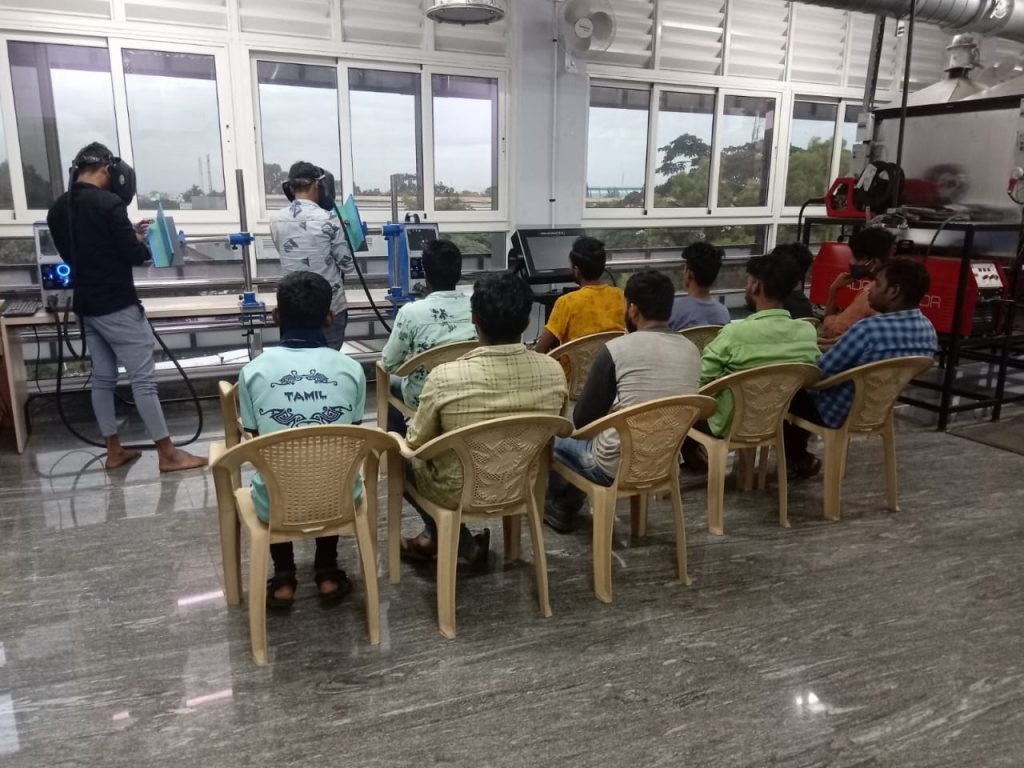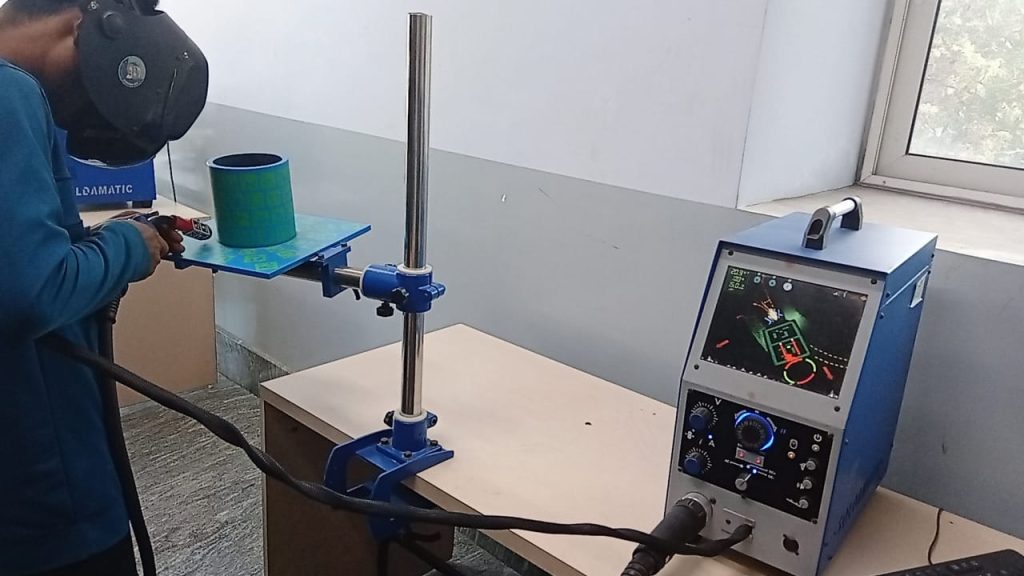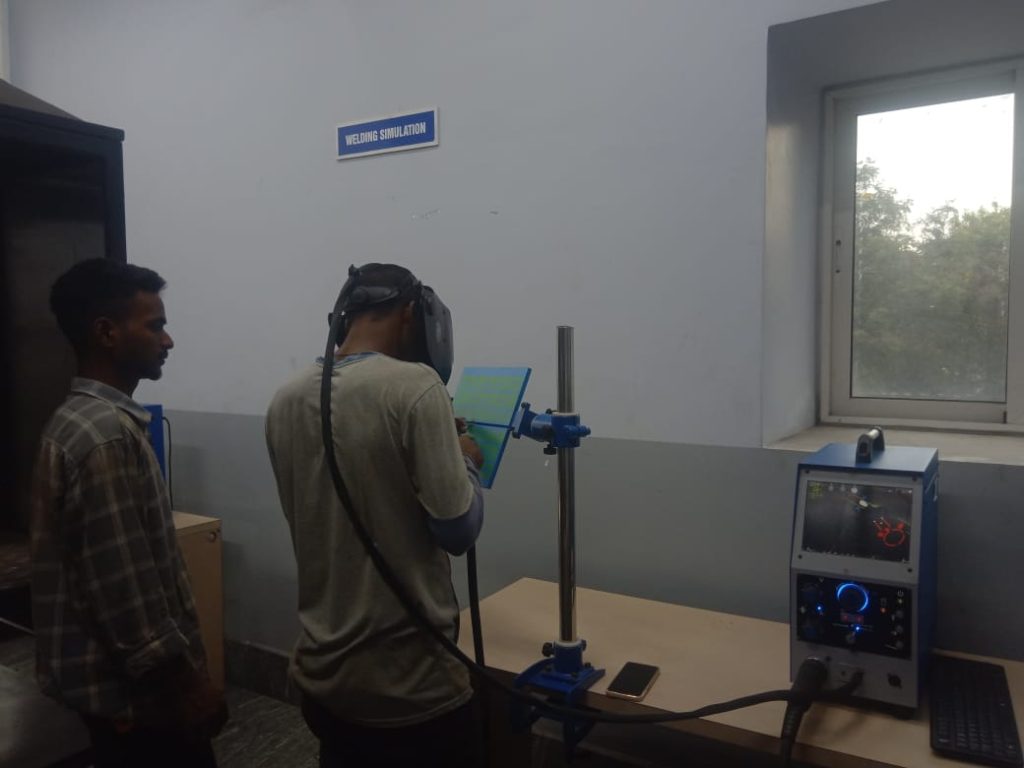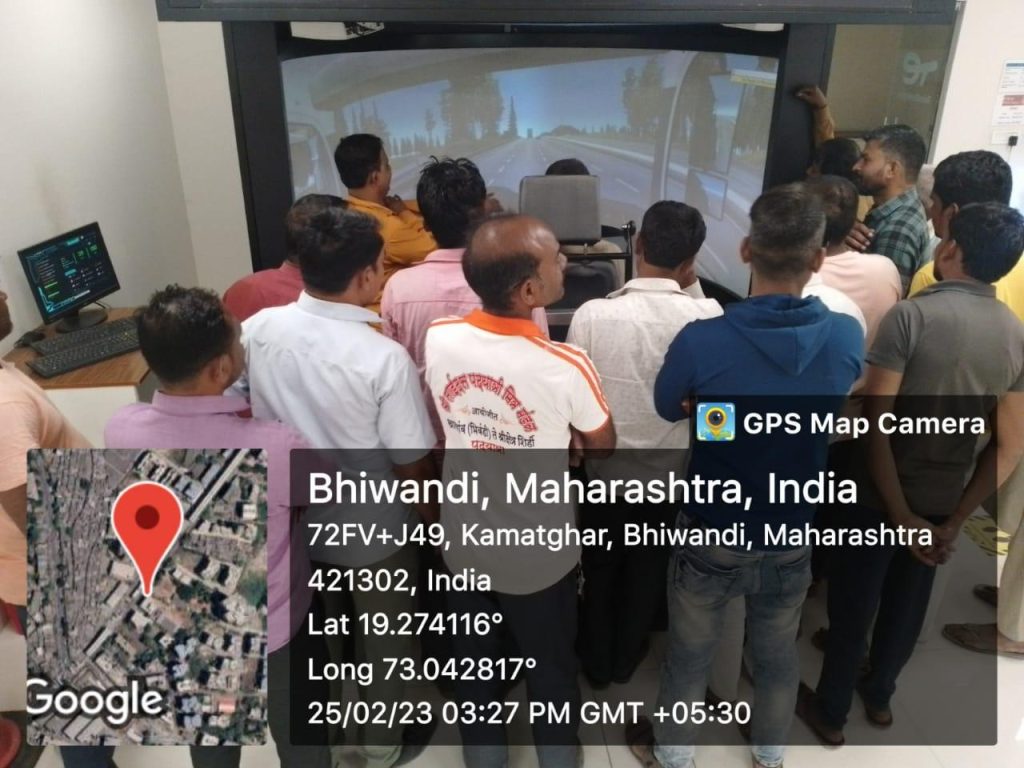
In the present-day technological world, Virtual Reality (VR) has emerged as a transformative technology, significantly impacting various sectors, including education and skill development. Harnessing the potential of this immersive technology is becoming crucial for the economy and more importantly, for empowering individuals across different strata of society.
Question:
How can virtual reality-powered skill development redefine skill training and empower learners across different fields?
Perspectives:
Leveraging Interactive Technologies for Enhanced Skill Development: VR, in its various forms — immersive, semi-immersive, and non-immersive, plays a critical role in skill development. Offering an interactive and realistic training environment, this technology allows learners to practice skills, understand complex concepts, and adapt to different work scenarios. Sambhav Foundation’s innovative use of such interactive technologies exemplifies this new approach to skill training.

Empowering Individuals through Immersive Learning Experiences: Interactive technologies hold enormous potential to empower individuals by helping them develop necessary skills and competencies. The successful implementation of VR in diverse training courses, such as industrial paint booth simulations, beauty therapist training, and welding simulations, demonstrates this potential.
Factors:
Enhancing Practical Skills and Safety with Semi-Immersive Experiences: Semi-immersive learning experiences offer a safe environment for learners to practice and improve their skills. For instance, in our welding training course, we use a semi-immersive environment to enable learners to practice welding techniques safely before moving to real-world applications.

Providing Realistic Contextual Learning with Non-Immersive Simulations: Non-immersive simulations help set the context for training. For example, our beauty therapist training course uses this type of simulation to provide learners with a visual feel of a beauty salon, preparing them for the actual workplace scenario.
Stimulating Experiential Learning with Immersive Technologies: VR stimulates experiential learning, making it easier for learners to understand complex concepts and processes. The truck simulator, for instance, provides a practical experience of handling heavy equipment in a virtual environment, enhancing learners’ understanding and confidence.

Immersive technology-powered skill development has immense potential to reshape the landscape of skill training, not only enhancing the learning experience but also empowering individuals with practical skills and competencies. The successful initiatives of the Sambhav Foundation showcase the transformational impact of immersive technologies in skill development. By continuing to innovate and leverage such technologies, we can truly revolutionise skill development and fuel inclusive growth.
Until next time,
Dr. Gayathri Vasudevan
Launch caption – Gayathri
Virtual Reality is a transformative force in today’s world, and the field of skill development is at the forefront of this revolution. In the latest edition of Impact At Scale, we delve into how this cutting-edge technology is fostering remarkable strides in the learning landscape. From semi-immersive and non-immersive experiences to fully immersive simulations, we’re exploring the various forms of VR and their impact on skill training.
At @Sambhav Foundation, we’re using VR to create safe, interactive and realistic training environments, empowering our learners with the skills and confidence they need to excel in their respective fields. Be it beauty therapy training or industrial welding, VR is enhancing both the learning experience and the end results.
As we venture further into this exciting realm, I’m eager to hear your thoughts and experiences. How do you envision immersive technologies reshaping skill development in the future?
Share your insights in the comments below.
#ImpactAtScale #VRTechnology #SkillDevelopment #ImmersiveLearning #Innovation




